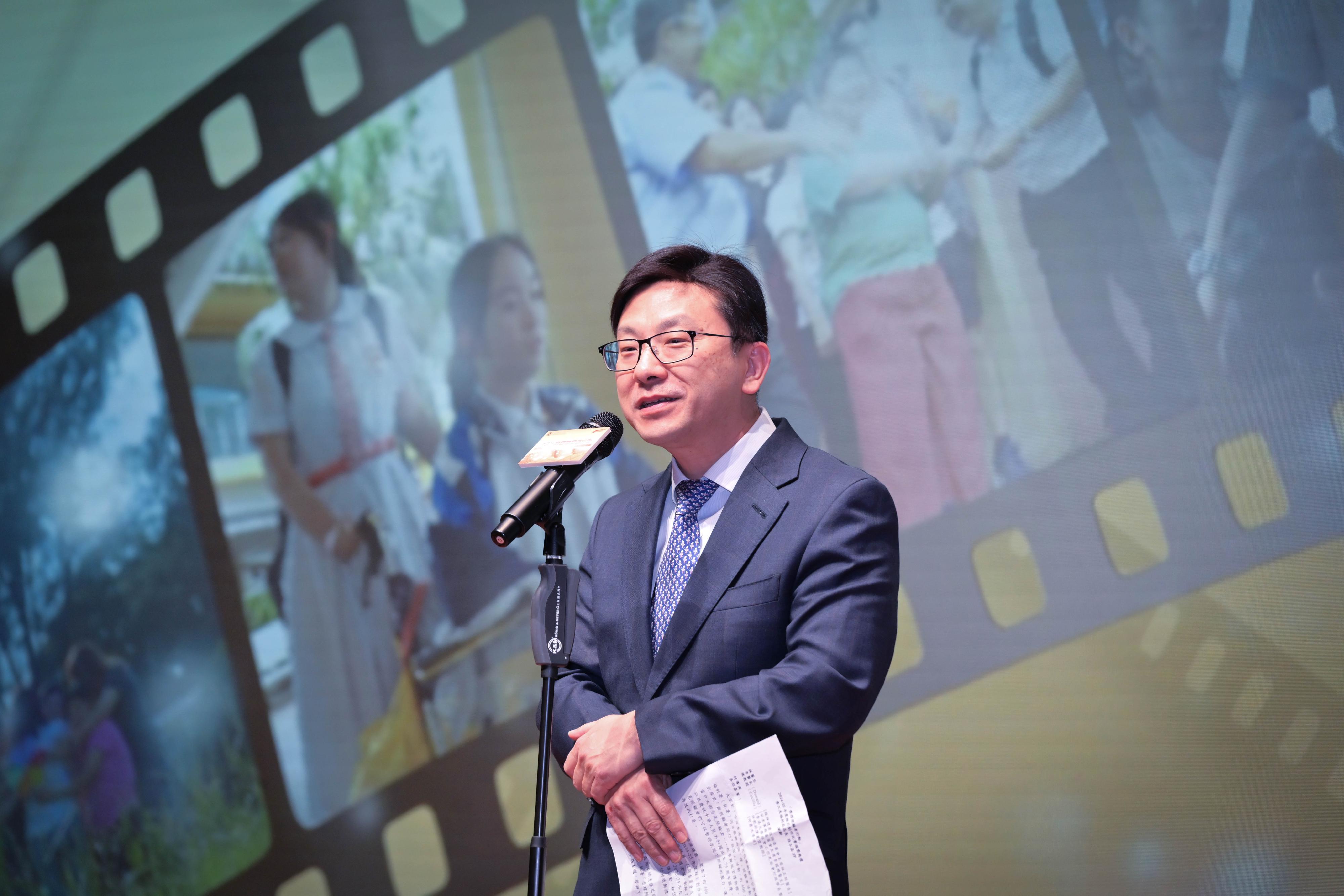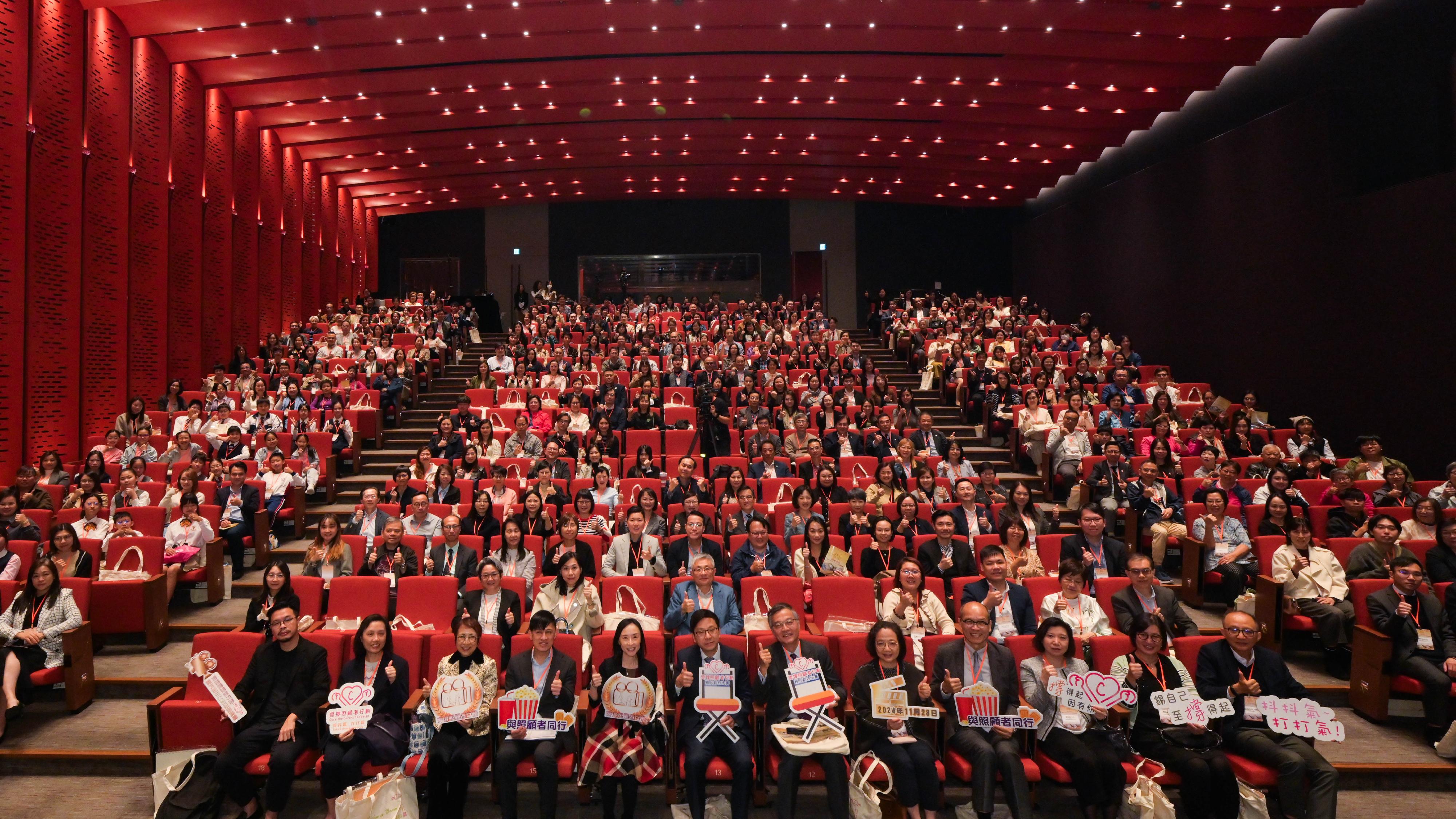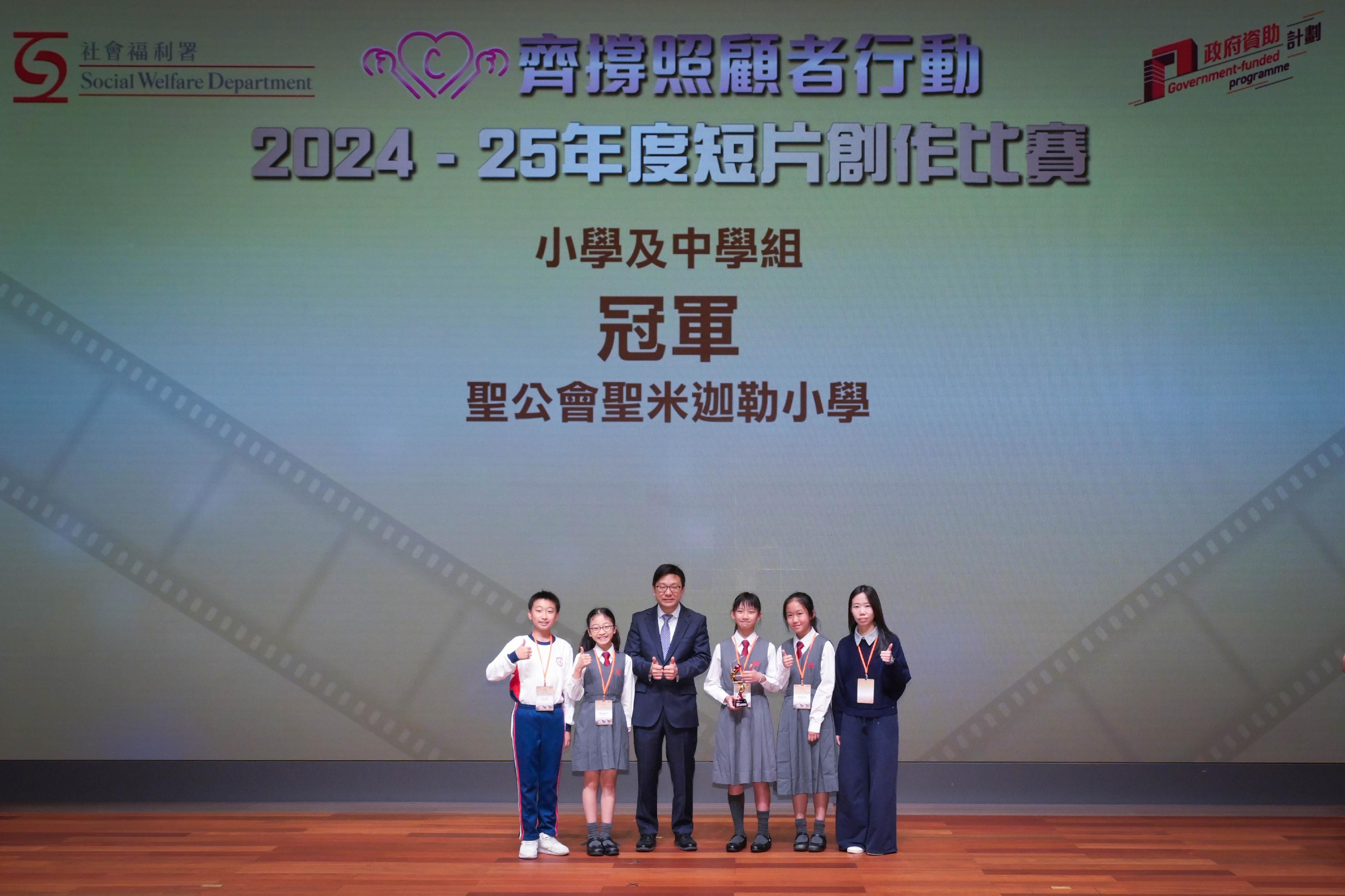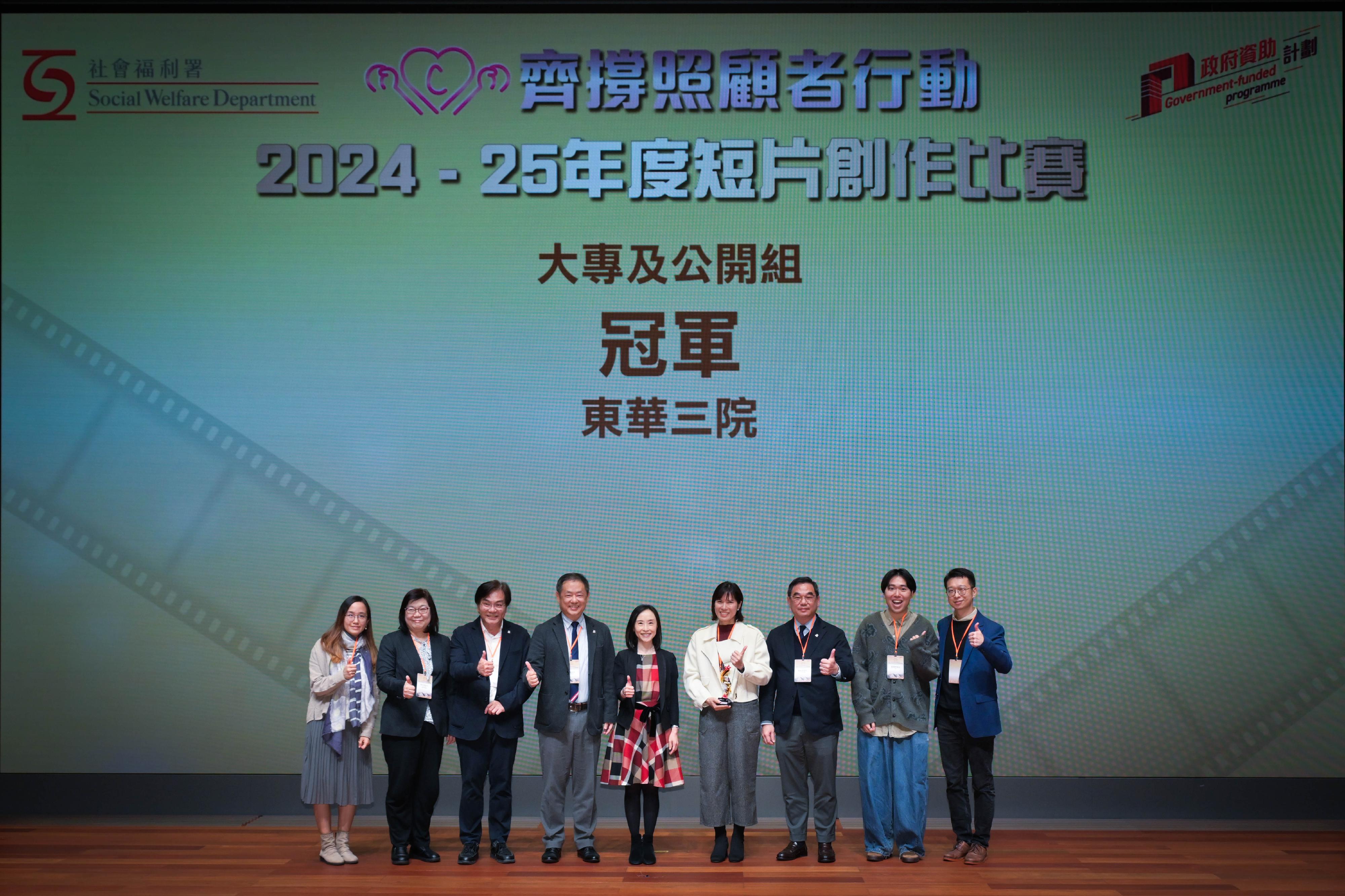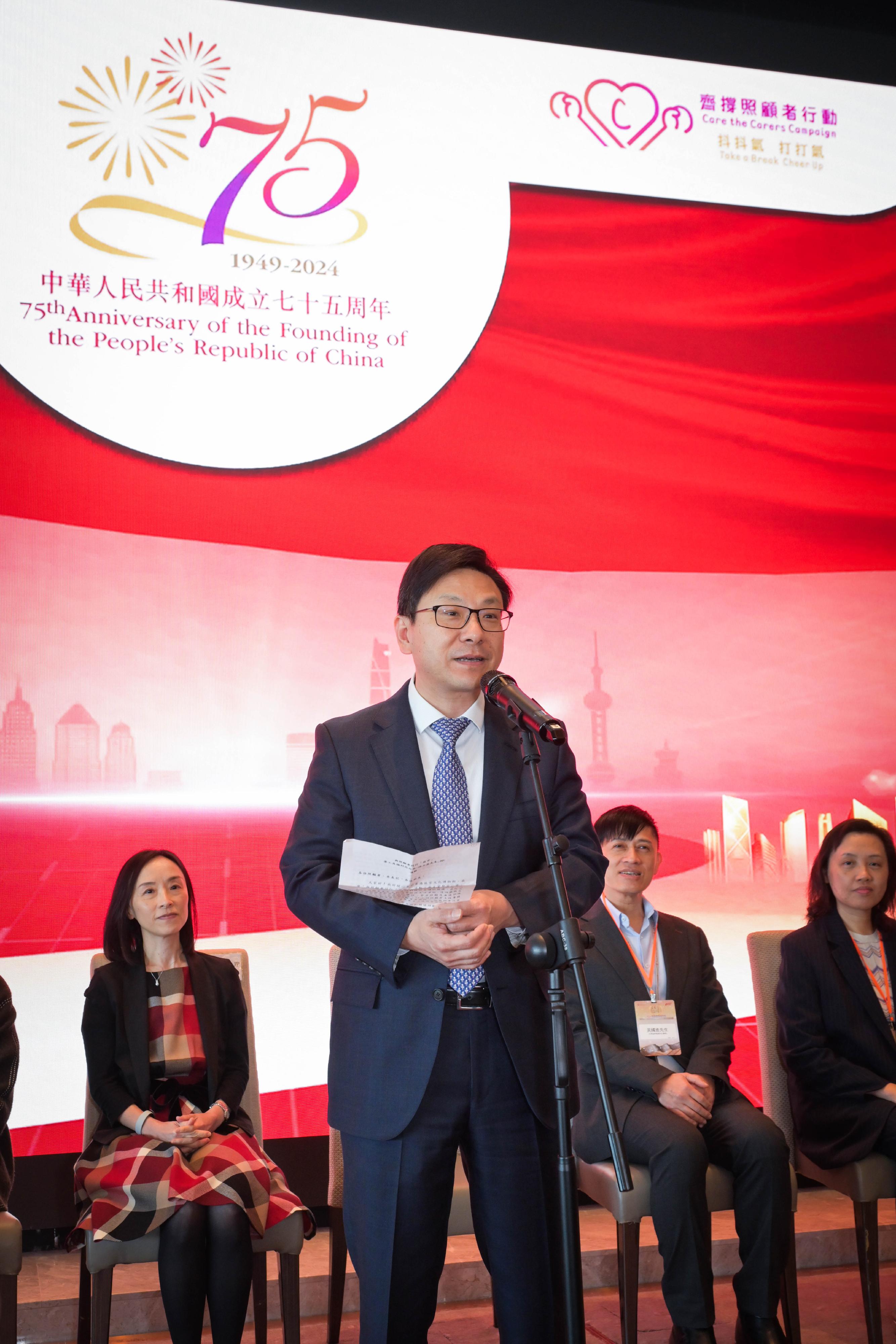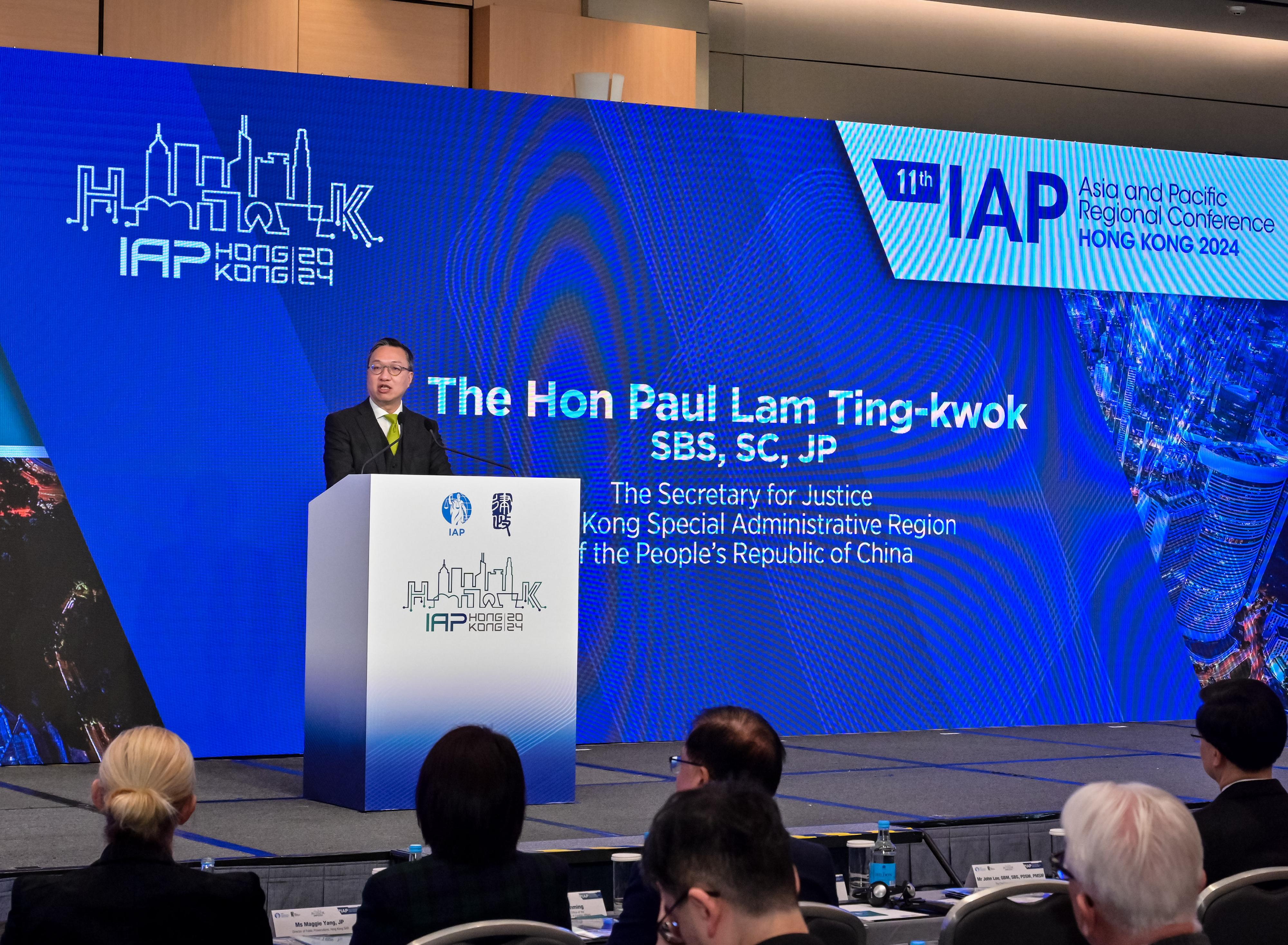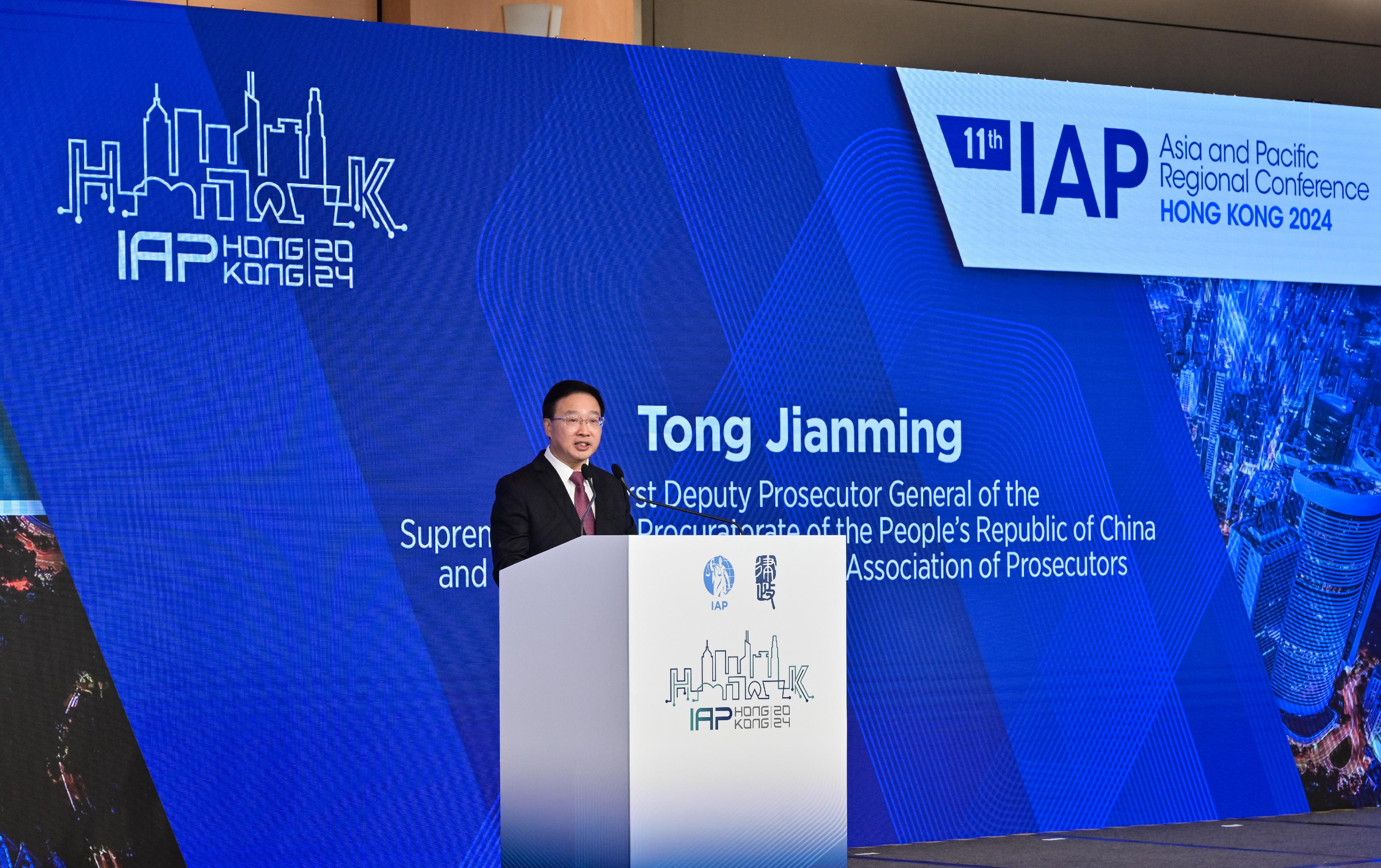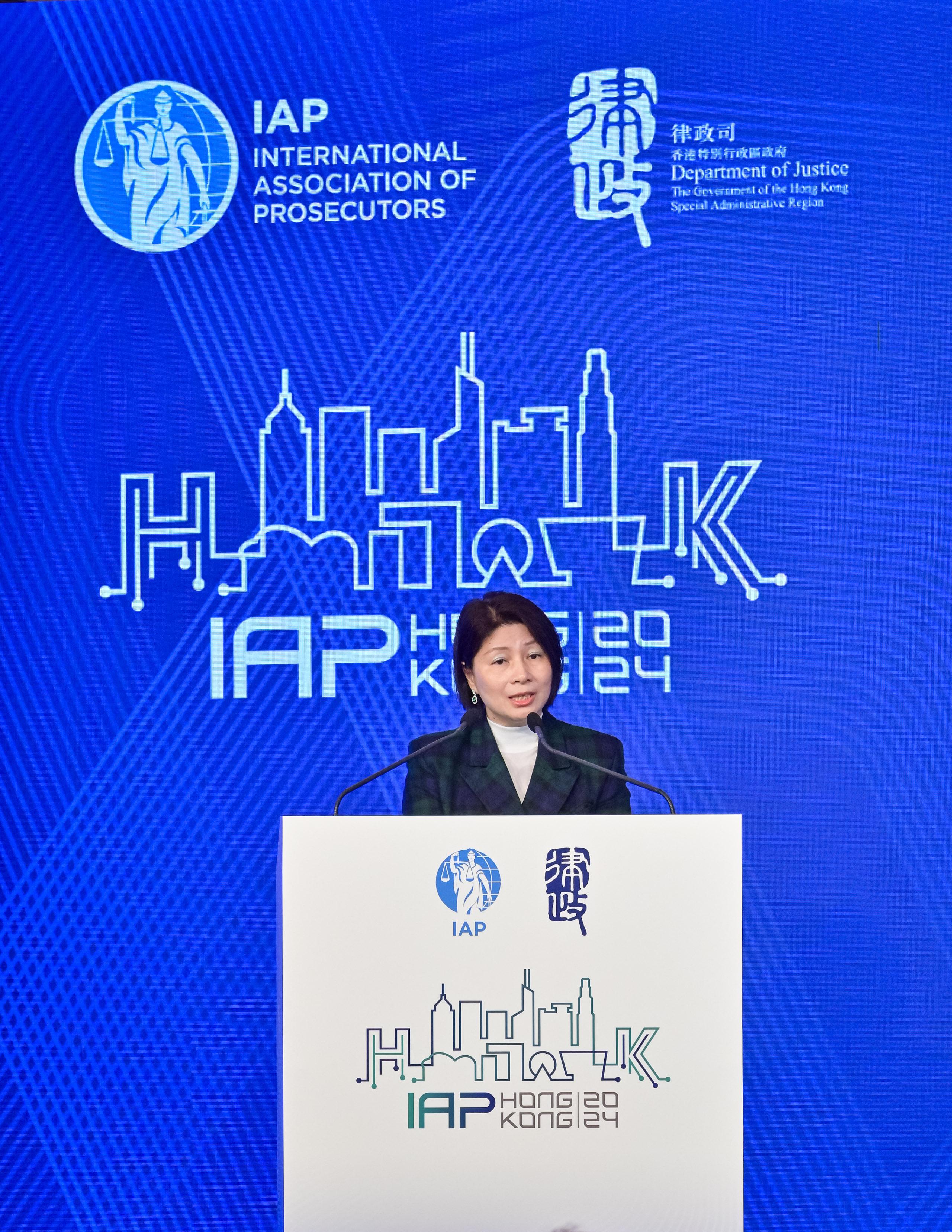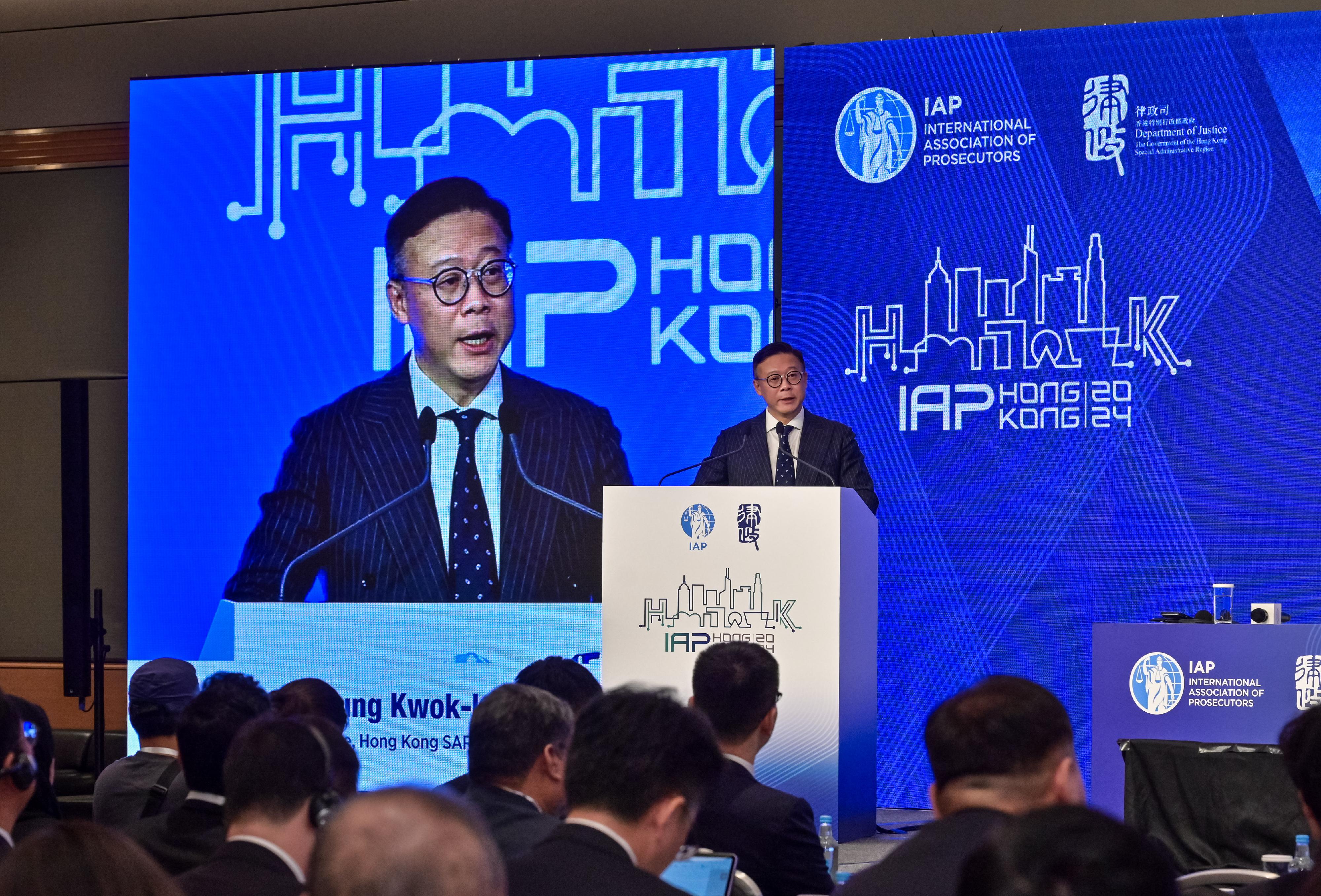Award Presentation Ceremony of “Care the Carers Campaign” Short Video Competition held today (with photos)
​The Social Welfare Department (SWD) held the Award Presentation Ceremony of the “Care the Carers Campaign” Short Video Competition at the Hong Kong Palace Museum today (November 28) to commend numerous short videos about carers. The ceremony aims to give praise and express gratitude to carers for their contributions and appeal to all sectors of society to show continuous care and support to carers.
Officiated by the Secretary for Labour and Welfare, Mr Chris Sun, and the Director of Social Welfare, Miss Charmaine Lee, the ceremony was attended by an audience of around 400, including Legislative Council Members and District Council members, as well as representatives from advisory committees, non-governmental organisations and district organisations, to express respect and support for carers from different sectors of the community.
The three-year territory-wide publicity campaign, Care the Carers Campaign, was launched last year. In support of this year’s theme, “Walk with Carers”, the SWD organised a short video competition. More than 180 submissions were received from individuals, schools and organisations. Members of the assessment panel included Miss Lee, Professor Emeritus of the Department of Social Work and Social Administration of the University of Hong Kong, Professor Cecilia Chan, and renowned director Ho Cheuk-tin.
Mr Sun said in the ceremony that carers are indispensable for elderly persons and persons with disabilities. The Government has long been attaching great importance to carers’ needs and providing continuous support to carers through different kinds of measures and services to relieve their pressure, including the 24-hour Designated Hotline for Carer Support 182 183, respite service, and living allowance for carers from low-income families, as well as personal care, home care and rehabilitation training for elderly persons and persons with disabilities.
Mr Sun commended the award-winning short videos not only for their outstanding quality but also for their delicate portrayal of carers’ stories and challenges, while showing the community’s care and support for carers. He made an appeal to the community to continue strengthening co-operation to enhance support for carers and build a carer-friendly environment.
Prior to the ceremony, Mr Sun also officiated at another event organised by the SWD named “Walk with Carers at Palace Museum”. The event invited about 400 elderly persons, persons with disabilities and their carers to visit the Hong Kong Palace Museum, followed by a scrumptious meal. The event allowed carers to take a break through a cultural and leisure trip while sharing the joy of the 75th anniversary of the founding of the People’s Republic of China.
To enhance public understanding of carers’ needs and contributions and promote mutual support in the community, the SWD has produced two new episodes of “The Stories of the Carers”. The two videos and the award-winning short videos have been uploaded to the SWD’s YouTube Channel (www.youtube.com/@SocialWelfareDepartment). The list of awardees of the short video competition is available in the annex.


